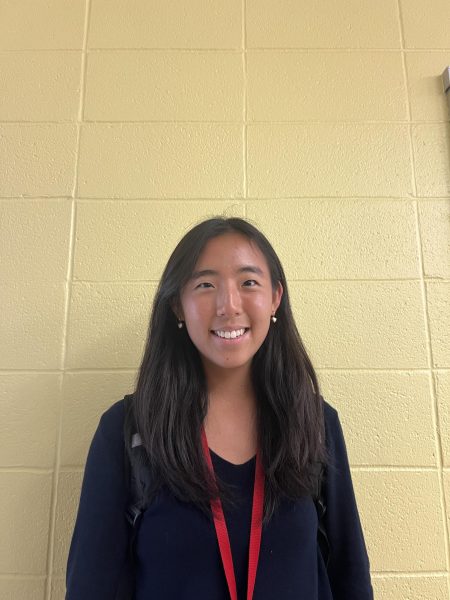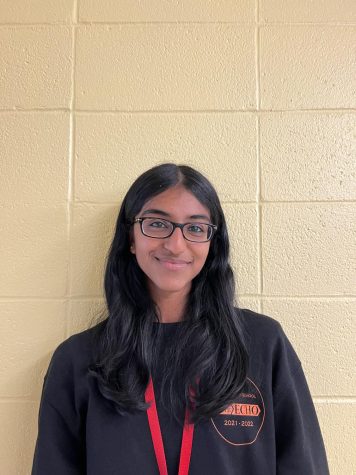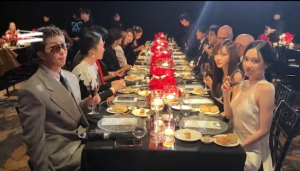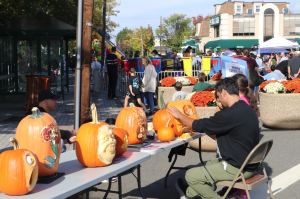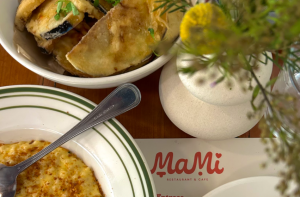From Labs to the Limelight: Celebrating the 11th Annual Dr. Helen Coyle Science Research Honors Symposium
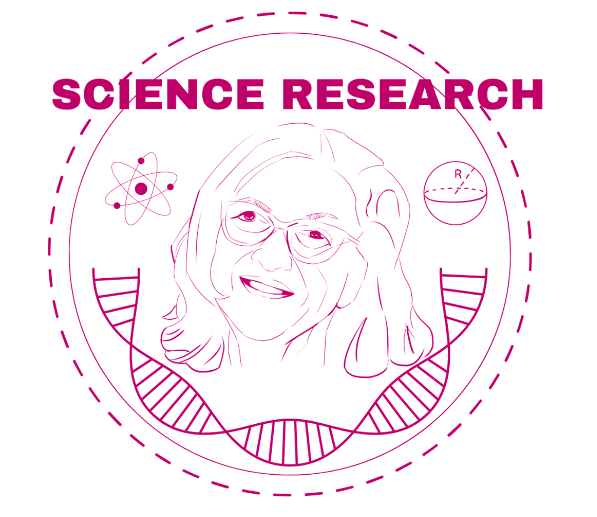
June 9, 2023
The 11th Science Research Symposium took place this past Tuesday on June 6. However, the event was organized as the first Dr. Helen Coyle Science Research Honors Symposium, dedicated to Dr. Coyle’s legacy, passion for science, and contagious kindness. Through the evening, students had the opportunity to share the exciting projects that they have been working on throughout the last school year. During this event, the incoming sophomores were also welcomed into the program and were given a sneak peek at the type of projects that they will be working on during their first year of science research.
As part of the science research community ourselves, we both love how this program challenges what you know and helps you gain experience that goes beyond what a classroom can teach. To truly capture what science research is all about, we asked some students and faculty members that are part of this program to share their experiences. Here’s what they had to say:
What is your favorite part about the science research program?
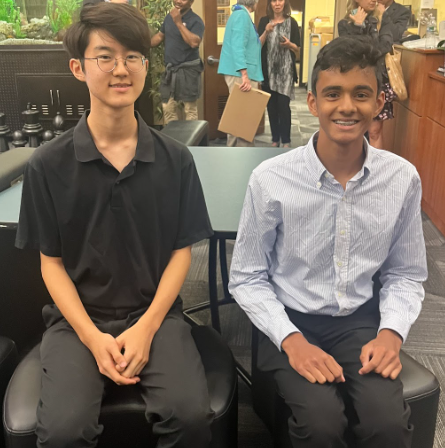
Sophomores Justin Byun and Nikhil Jathavedam, completed a project on the Biodiversity of Fungi in Northern New Jersey and recently won the Grand Prize for the Urban Barcoding Project. Nik reflected on how he “enjoy[s] the freedom and ability to work at [his] own pace and self motivate [himself] to complete the work.”
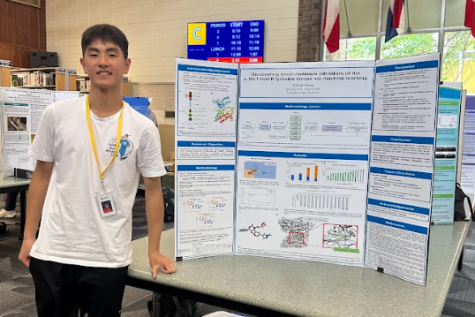
Junior Elliott Yoon, who recently won the International Science and Engineering Grand Prize, explained that his favorite part of the program “is being in a class with other students who are really passionate about STEM.” He enjoys seeing everyone’s cool and unique ideas and projects. Elliott also explained how “the SR program gave [him] the opportunity to pursue specific interests [he] had within STEM,” allowing him to “add on to existing knowledge or apply it in a new way through research.”
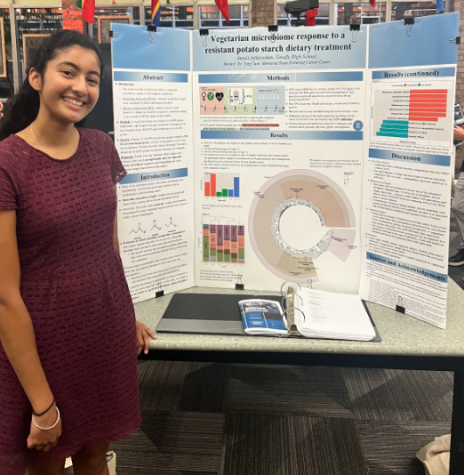
Senior Anjali Jathavedam, who will be attending the School of Engineering and Applied Sciences at the University of Pennsylvania next year, loves the collaboration factor of the program. “In no other one of my classes do we get to collaborate so much not only within our grade, but with the other grades as well,” Jathavedam said. She added how she also loves how “supportive everyone is of each other and how everyone is motivated to learn and pursue their own, original research.”
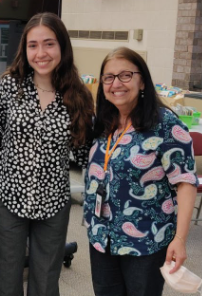
Senior Tamar Peleg, who plans to continue her research pursuits at the University of Delaware Honors College, shared how she loves how the program offers students the freedom to “explore whatever inspires you, and not be confined to any curriculum or ideas. I also really enjoy the real-world application of research and how if you work in a lab you have the chance to work with equipment and people that are leading the world in terms of innovation.” As a science research student under Dr. Coyle, Peleg reflected how, “[Dr. Coyle] inspired me to dream big and never give up, and I look up to her in so many ways. She influenced my life in ways that I’m not even aware of yet but I will never forget her contagious passion and how she cared about her students so deeply.” Dr. Coyle inspired so many students to truly love the science process, and her memory will always live on through this incredible program.
What skills do students obtain from participating in science research?
Ms. Firnberg, our science research teacher who has been teaching the AP Chemistry course at THS since 2003, believes that “among many skills, students learn time management skills, they develop confidence in presenting their work in front of an audience, and are able to develop a research project under the guidance of a professional scientist. Students also learn statistical analysis of experimental data, attend competitions, and learn to offer constructive comments to their peers.” She loves teaching this program and helping eager, motivated, and ambitious students acquire a mentorship under a professional scientist.
So, what makes science research different from the other classes THS offers?
Mr. Brandstaedter, a passionate physics teacher at THS since 2014, joined science research just last year and he has already observed how “this course gives students the opportunity to learn in a way that other classes do not. Students have the ability to learn independently, to educate themselves on any topic(s) of interest, to solve problems, to think critically, to work with others, to create (and potentially publish!) original work!”
Although science research often proves itself as a timely and tedious program, it is important to remember its significance because it has the potential to address real-world challenges.












































































































































